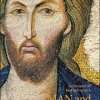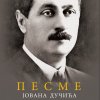by Archimandrite Justin Popovich
"Father Justin Popovich, pan-orthodox witness to the God-revealed and Christ-given Eternal Truth, whose testimony can be even seen within this collection of his articles - that "the mystery of Truth is not in material things, not in ideas, not in symbols, but in Personhood, namely the Theanthropic Person of the Lord Christ, Who said: I am the Truth (John 14:6), Truth perfect, never diminished, always one and the same in its complete fullness - yesterday, today, and forever (Heb.13:8)."
The treasure to be found in this anthology of neopatristic syntheses consists of: "Perfect God and perfect man" - Nativity Epistle, where Fr Justin boldly exclaim that "man is only a true man when he is completely united with God, only and solely in God is man a man, true man, perfect man, a man in whom all the fullness of Godhead lives."; "The God-man" - The foundation of the Truth of Orthodoxy - Ava Justinian language of love in Christ-centered reflections of Truth; "The Supreme Value and Infallible Criterion"- contemporary philosophical reflections on visible and invisible realities; "Sentenced to Immortality" - a homily on the Resurrection or Our Lord Jesus Christ; "Humanistic and Theanthropic Culture"-criticism of European anti-Christian culture; "Humanistic and Theanthropic Education" - indicative pondering of consequences of education without God.. ; "The Theory of Knowledge of Saint Isaac the Syrian" - Faith, prayer, love, humility, grace and freedom, the purification of the intellect, mystery of knowledge; "A Deer in a Lost Paradise" - Ava's renowned poetic essay, a confession, and deepest longing for all-sweetest Jesus...





